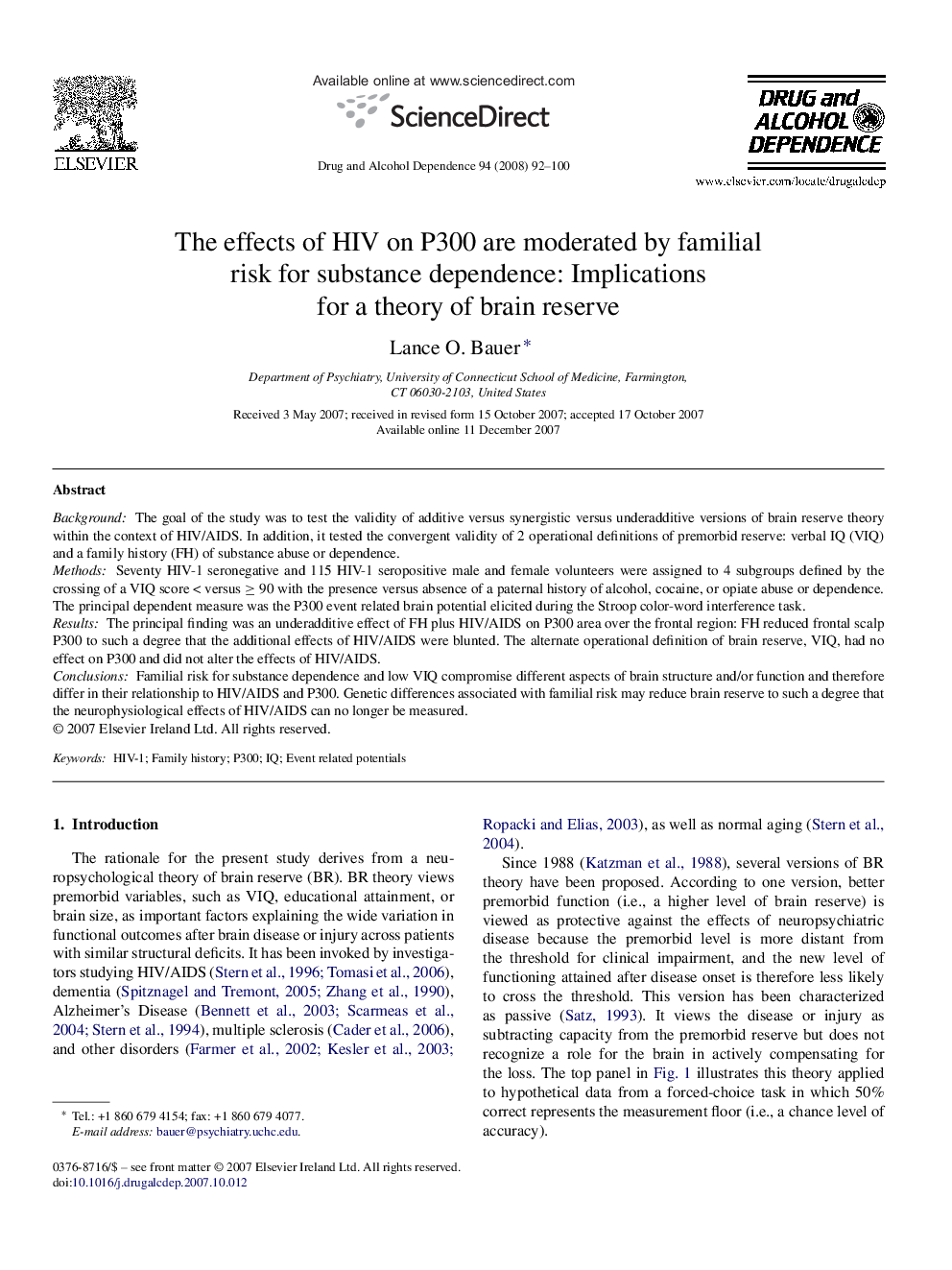| کد مقاله | کد نشریه | سال انتشار | مقاله انگلیسی | نسخه تمام متن |
|---|---|---|---|---|
| 1071131 | 1486198 | 2008 | 9 صفحه PDF | دانلود رایگان |

BackgroundThe goal of the study was to test the validity of additive versus synergistic versus underadditive versions of brain reserve theory within the context of HIV/AIDS. In addition, it tested the convergent validity of 2 operational definitions of premorbid reserve: verbal IQ (VIQ) and a family history (FH) of substance abuse or dependence.MethodsSeventy HIV-1 seronegative and 115 HIV-1 seropositive male and female volunteers were assigned to 4 subgroups defined by the crossing of a VIQ score < versus ≥ 90 with the presence versus absence of a paternal history of alcohol, cocaine, or opiate abuse or dependence. The principal dependent measure was the P300 event related brain potential elicited during the Stroop color-word interference task.ResultsThe principal finding was an underadditive effect of FH plus HIV/AIDS on P300 area over the frontal region: FH reduced frontal scalp P300 to such a degree that the additional effects of HIV/AIDS were blunted. The alternate operational definition of brain reserve, VIQ, had no effect on P300 and did not alter the effects of HIV/AIDS.ConclusionsFamilial risk for substance dependence and low VIQ compromise different aspects of brain structure and/or function and therefore differ in their relationship to HIV/AIDS and P300. Genetic differences associated with familial risk may reduce brain reserve to such a degree that the neurophysiological effects of HIV/AIDS can no longer be measured.
Journal: Drug and Alcohol Dependence - Volume 94, Issues 1–3, 1 April 2008, Pages 92–100